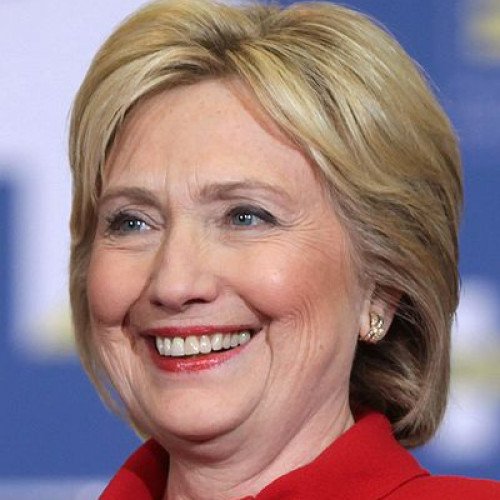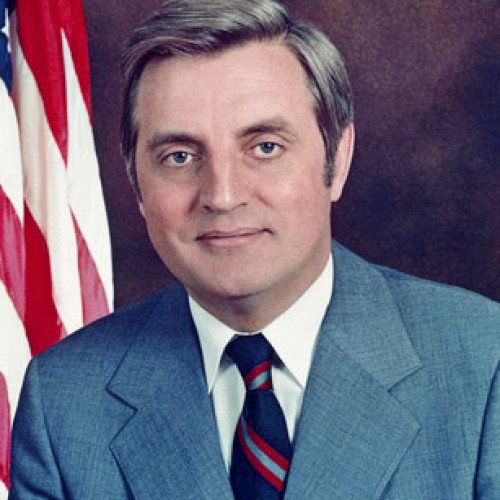Hillary Clinton VS Walter Mondale

Hillary Clinton
Hillary Diane Rodham Clinton (née Rodham; born October 26, 1947) is an American politician, diplomat, lawyer, writer, and public speaker who served as the 67th United States secretary of state from 2009 to 2013, as a United States senator from New York from 2001 to 2009, and as First Lady of the United States from 1993 to 2001. Clinton became the first woman to be nominated for president of the United States by a major political party when she won the Democratic Party nomination in 2016. She was the first woman to win the popular vote in an American presidential election, which she lost to Donald Trump. Raised in the Chicago suburb of Park Ridge, Clinton graduated from Wellesley College in 1969 and earned a Juris Doctor from Yale Law School in 1973. After serving as a congressional legal counsel, she moved to Arkansas and married future president Bill Clinton in 1975; the two had met at Yale. In 1977, she co-founded Arkansas Advocates for Children and Families. She was appointed the first female chair of the Legal Services Corporation in 1978 and became the first female partner at Little Rock's Rose Law Firm the following year. The National Law Journal twice listed her as one of the hundred most influential lawyers in America. Clinton was the first lady of Arkansas from 1979 to 1981 and again from 1983 to 1992. As First Lady of the United States, Clinton advocated for healthcare reform. In 1994, her major initiative—the Clinton health care plan—failed to gain approval from Congress. In 1997 and 1999, Clinton played a leading role in advocating the creation of the State Children's Health Insurance Program, the Adoption and Safe Families Act, and the Foster Care Independence Act. Clinton advocated for gender equality at the 1995 UN conference on women. Her marital relationship came under public scrutiny during the Lewinsky scandal, which led her to issue a statement that reaffirmed her commitment to the marriage. In 2000, Clinton was elected as the first female senator from New York. She was re-elected in 2006 and chaired the Senate Democratic Steering and Outreach Committee from 2003 to 2007. During her Senate tenure, Clinton advocated for medical benefits for first responders whose health was damaged in the September 11 attacks. She supported the resolution authorizing the Iraq War in 2002 but opposed the surge of U.S. troops in 2007. In 2008, Clinton ran for president but was defeated by eventual winner Barack Obama in the Democratic primaries. Clinton was U.S. secretary of state in the first term of the Obama Administration from 2009 to 2013. During her tenure, Clinton established the Quadrennial Diplomacy and Development Review. She responded to the Arab Spring by advocating military intervention in Libya but was harshly criticized by Republicans for the failure to prevent or adequately respond to the 2012 Benghazi attack. Clinton helped to organize a diplomatic isolation and a regime of international sanctions against Iran in an effort to force it to curtail its nuclear program; this effort eventually led to the multinational JCPOA nuclear agreement in 2015. Her use of a private email server when she was Secretary of State was the subject of intense scrutiny; while no charges were filed against Clinton, the email controversy was the single most covered topic during the 2016 presidential election. Clinton made a second presidential run in 2016. After winning the Democratic nomination, she ran in the general election with Virginia senator Tim Kaine as her running mate. Clinton lost the presidential election to Republican opponent Donald Trump in the Electoral College despite winning a plurality of the popular vote. Following her loss, she wrote her third memoir, What Happened, and launched Onward Together, a political action organization dedicated to fundraising for progressive political groups. She is the current chancellor of Queen's University Belfast in Belfast, Northern Ireland.
Statistics for this Xoptio

Walter Mondale
Walter Frederick "Fritz" Mondale (born January 5, 1928) is an American politician, diplomat and lawyer who served as the 42nd vice president of the United States from 1977 to 1981. A United States senator from Minnesota (1964–1976), he was the Democratic Party's nominee in the 1984 United States presidential election, but lost to incumbent Ronald Reagan in an Electoral College and popular vote landslide. Reagan won 49 states while Mondale carried his home state of Minnesota and the District of Columbia. In October 2002, Mondale became the last-minute choice of the Minnesota Democratic–Farmer–Labor Party to run for Senate after the death of Senator Paul Wellstone, but was defeated by Saint Paul Mayor Norm Coleman. Mondale became the oldest living former U.S. vice president after the death of George H. W. Bush in 2018. Mondale was born in Ceylon, Minnesota, and graduated from the University of Minnesota in 1951 after attending Macalester College. He then served in the United States Army during the Korean War before earning a law degree in 1956. He married Joan Adams in 1955. Working as a lawyer in Minneapolis, Mondale was appointed Minnesota Attorney General in 1960 by Governor Orville Freeman and was elected to a full term as attorney general in 1962 with 60% of the vote. He was appointed to the U.S. Senate by Governor Karl Rolvaag upon the resignation of Senator Hubert Humphrey following Humphrey's election as vice president in 1964. Mondale was elected to a full Senate term in 1966 and reelected in 1972, resigning in 1976 as he prepared to succeed to the vice presidency in 1977. While in the Senate, he supported consumer protection, fair housing, tax reform, and the desegregation of schools. Importantly, he served as a member of the Select Committee to Study Governmental Operations with Respect to Intelligence Activities ("Church Committee").In 1976, Jimmy Carter, the Democratic presidential nominee, chose Mondale as his vice-presidential running mate. The Carter–Mondale ticket defeated incumbent president Gerald Ford and his vice presidential running mate, Bob Dole. Carter and Mondale's time in office was marred by a worsening economy and they lost the 1980 election to Republicans Ronald Reagan and George H. W. Bush. In 1984, Mondale won the Democratic presidential nomination and campaigned for a nuclear freeze, the Equal Rights Amendment, an increase in taxes, and a reduction of U.S. public debt. His vice presidential nominee was Geraldine Ferraro, a Congresswoman from New York, the first female vice-presidential nominee of any major party. Mondale and Ferraro lost the election to the incumbents Reagan and Bush. After his defeat, Mondale joined the Minnesota-based law firm Dorsey & Whitney and the National Democratic Institute for International Affairs (1986–93). President Bill Clinton appointed Mondale United States Ambassador to Japan in 1993; he retired in 1996. In 2002, Mondale ran for his old Senate seat, agreeing to be the last-minute replacement for Democratic Senator Paul Wellstone, who died in a plane crash less than two weeks before the election. Mondale narrowly lost the race to Saint Paul mayor Norm Coleman. He then returned to working at Dorsey & Whitney and remained active in the Democratic Party. Mondale later took up a part-time teaching position at the University of Minnesota's Hubert H. Humphrey School of Public Affairs.